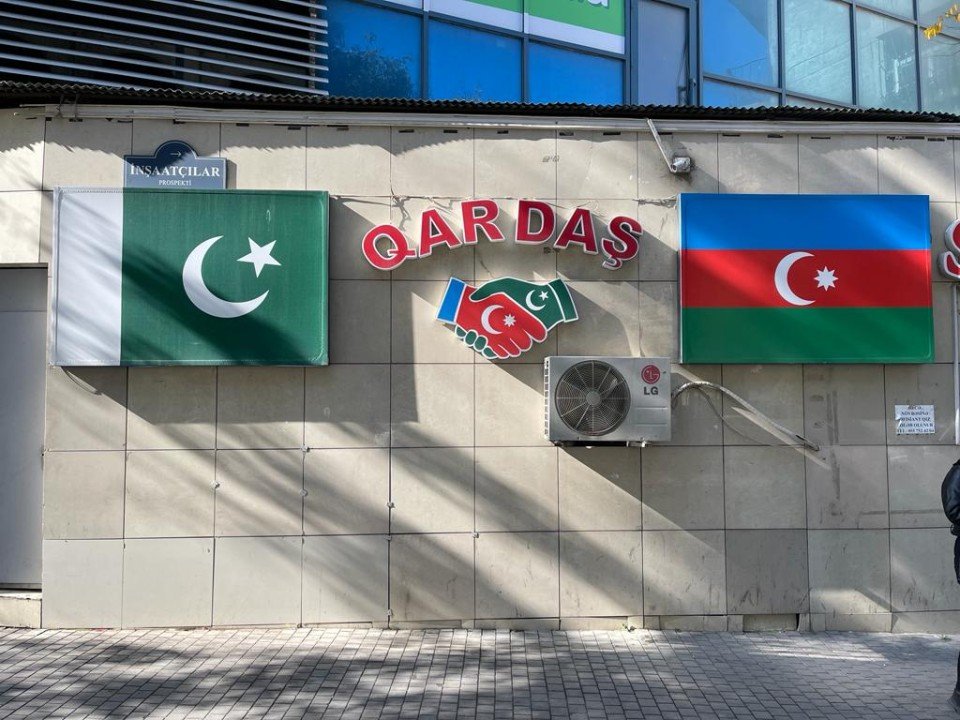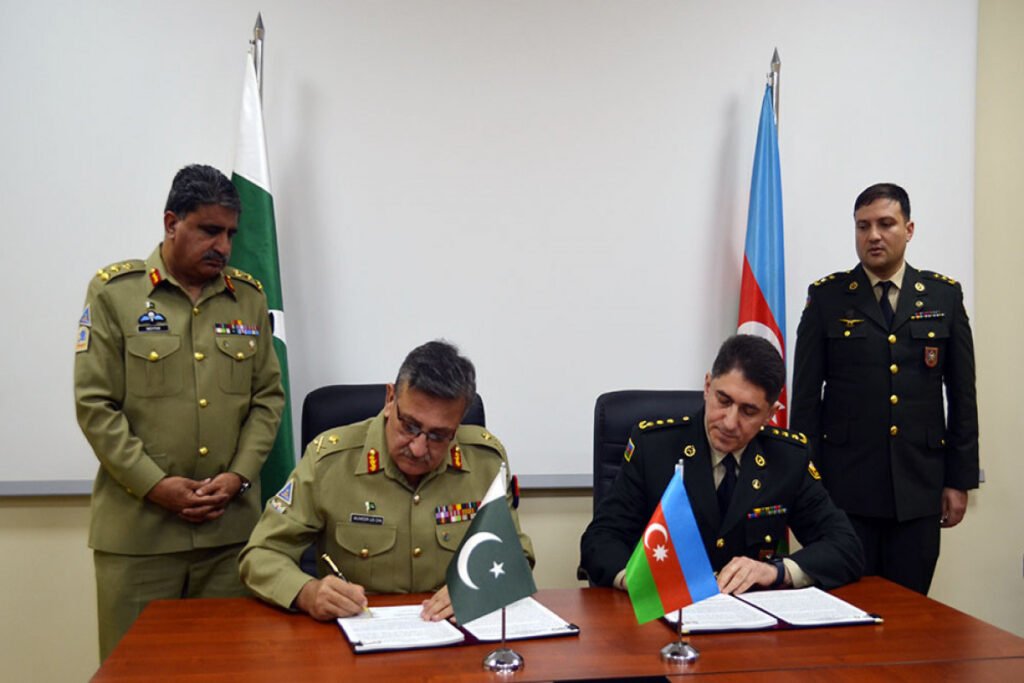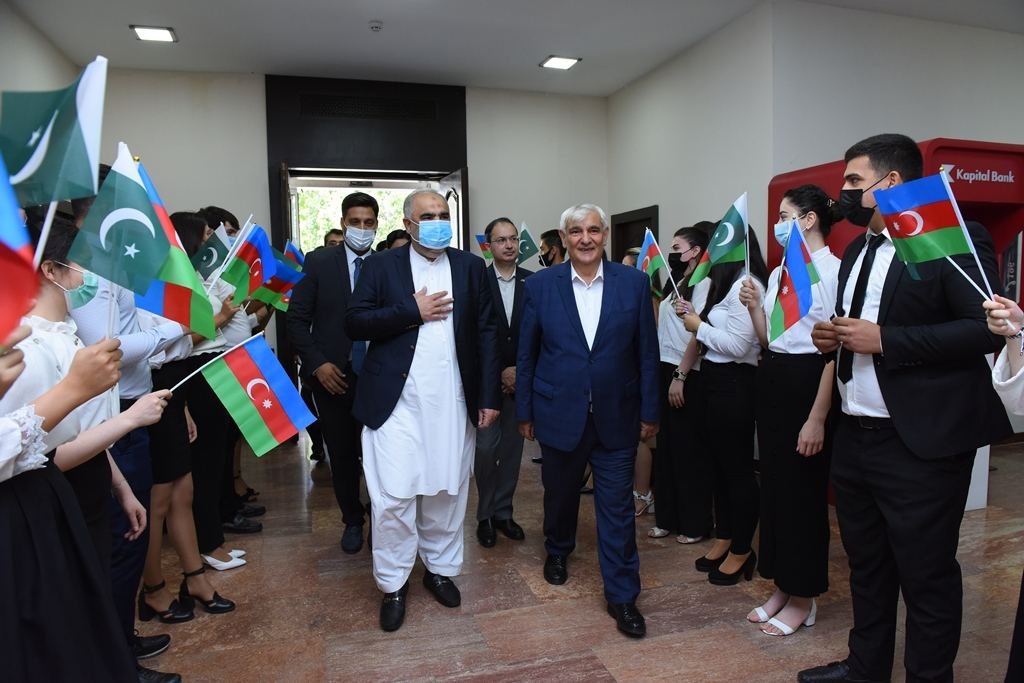The relationship between Azerbaijan and Pakistan spans various dimensions, including historical ties, diplomatic cooperation, economic collaboration, and cultural exchanges. Both nations, situated in different regions of the world, share commonalities in terms of their geopolitical positions, religious affiliations, and aspirations for regional stability and development. Understanding the depth and breadth of their relationship requires an exploration of their historical interactions, contemporary diplomatic engagements, economic partnerships, and cultural exchanges.
Historical Background:
Azerbaijan:
Azerbaijan, located at the crossroads of Eastern Europe and Western Asia, has a rich historical heritage dating back millennia. The region has been inhabited since ancient times and has witnessed the rise and fall of numerous empires, including the Persian, Roman, Byzantine, and Ottoman Empires. However, it was during the 20th century that Azerbaijan gained prominence due to its oil wealth and strategic significance.
In 1918, Azerbaijan declared independence from the Russian Empire, becoming the first secular democratic state in the Muslim world. However, this independence was short-lived as the Soviet Union annexed Azerbaijan in 1920. Azerbaijan remained a constituent republic of the Soviet Union until its dissolution in 1991 when it once again declared independence.
Pakistan:
Pakistan, situated in South Asia, has a history that intertwines with the broader Indian subcontinent. The region has been inhabited for thousands of years and has been home to various civilizations, including the Indus Valley Civilization and the Maurya and Gupta Empires. However, it was the arrival of Islam in the 7th century that left a lasting impact on the region’s culture, language, and society.
Pakistan’s modern history began with the partition of British India in 1947, which resulted in the creation of two independent nations, India and Pakistan. Pakistan emerged as a homeland for Muslims in South Asia and has since experienced periods of political instability, military rule, and democratic governance.

Diplomatic Relations:
Bilateral Ties:
Azerbaijan and Pakistan established diplomatic relations shortly after Azerbaijan gained independence in 1991. Since then, both countries have maintained cordial relations characterized by mutual respect and cooperation. High-level visits between officials from both nations have strengthened diplomatic ties and explored avenues for collaboration in various fields.
Multilateral Engagement:
Both Azerbaijan and Pakistan are members of several international organizations, including the United Nations, the Organization of Islamic Cooperation (OIC), and the Economic Cooperation Organization (ECO). Their membership in these forums provides opportunities for coordination on regional and global issues of mutual interest, such as counterterrorism, trade facilitation, and cultural exchanges.
Conflict Resolution:
Azerbaijan and Pakistan have expressed solidarity on issues of territorial integrity and conflict resolution. Pakistan has voiced support for Azerbaijan’s position regarding the Nagorno-Karabakh conflict, affirming Azerbaijan’s sovereignty and territorial integrity within its internationally recognized borders. Such expressions of solidarity underscore the strength of bilateral relations between the two countries.
Economic Collaboration:
Trade and Investment:
Trade between Azerbaijan and Pakistan has been steadily growing, albeit from a relatively modest base. Both countries have sought to diversify their trade portfolios and explore opportunities for enhancing economic cooperation in sectors such as energy, agriculture, textiles, and pharmaceuticals. Efforts to boost bilateral trade have been facilitated by the exchange of trade delegations and the signing of trade agreements.

Energy Cooperation:
Azerbaijan, endowed with significant oil and gas reserves, has emerged as an important energy player in the Caucasus region. Pakistan, with its growing energy needs, has expressed interest in importing energy resources from Azerbaijan. Projects such as the Trans-Anatolian Natural Gas Pipeline (TANAP) and the Trans-Adriatic Pipeline (TAP), which transport Azerbaijani gas to Europe, have the potential to enhance energy cooperation between Azerbaijan and Pakistan.
Infrastructure Development:
Infrastructure development projects offer another avenue for collaboration between Azerbaijan and Pakistan. Both countries have recognized the importance of investing in infrastructure to support economic growth and enhance connectivity within their respective regions. Initiatives such as the Belt and Road Initiative (BRI) provide opportunities for Azerbaijan and Pakistan to cooperate on infrastructure projects that promote trade, investment, and regional integration.
Cultural Exchanges:
Shared Heritage:
Azerbaijan and Pakistan share cultural ties rooted in their common Islamic heritage and historical connections. Both nations have a rich cultural heritage that encompasses literature, music, art, and cuisine. Cultural exchanges between Azerbaijan and Pakistan have served to deepen mutual understanding and appreciation of each other’s traditions and customs.

Educational Cooperation:
Cooperation in the field of education has emerged as a key component of Azerbaijan-Pakistan relations. Both countries have sought to enhance academic exchanges, scholarship programs, and joint research initiatives. Educational cooperation facilitates the exchange of knowledge and expertise in various disciplines, thereby contributing to human capital development and capacity building.
People-to-People Contacts:
People-to-people contacts play a crucial role in fostering goodwill and understanding between Azerbaijan and Pakistan. Cultural events, such as festivals, exhibitions, and performances, provide platforms for interaction and exchange between citizens of both countries. Tourism also serves as a means of promoting cultural exchange and economic cooperation by facilitating travel and cross-cultural engagement.
Historical ties, diplomatic cooperation, economic collaboration, and cultural exchanges characterize the relationship between Azerbaijan and Pakistan. Despite being located in different regions of the world, both nations share commonalities in terms of their geopolitical positions, religious affiliations, and aspirations for regional stability and development. By building on their shared interests and mutual respect, Azerbaijan and Pakistan can further strengthen their partnership and contribute to peace, prosperity, and progress in their respective regions and beyond.

Thank you, I have just been searching for information approximately this topic for a while and yours is the best I have found out so far. However, what in regards to the bottom line? Are you certain concerning the supply?